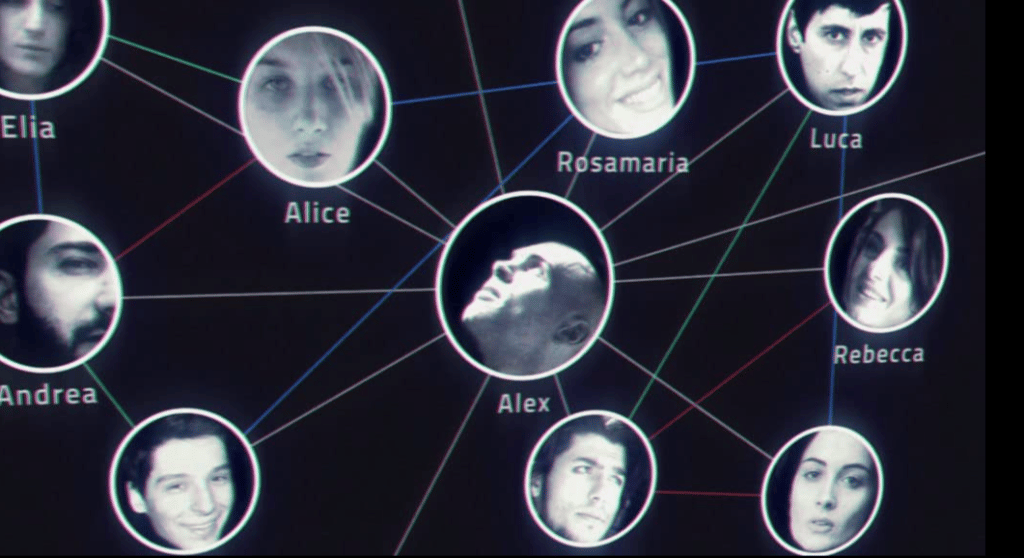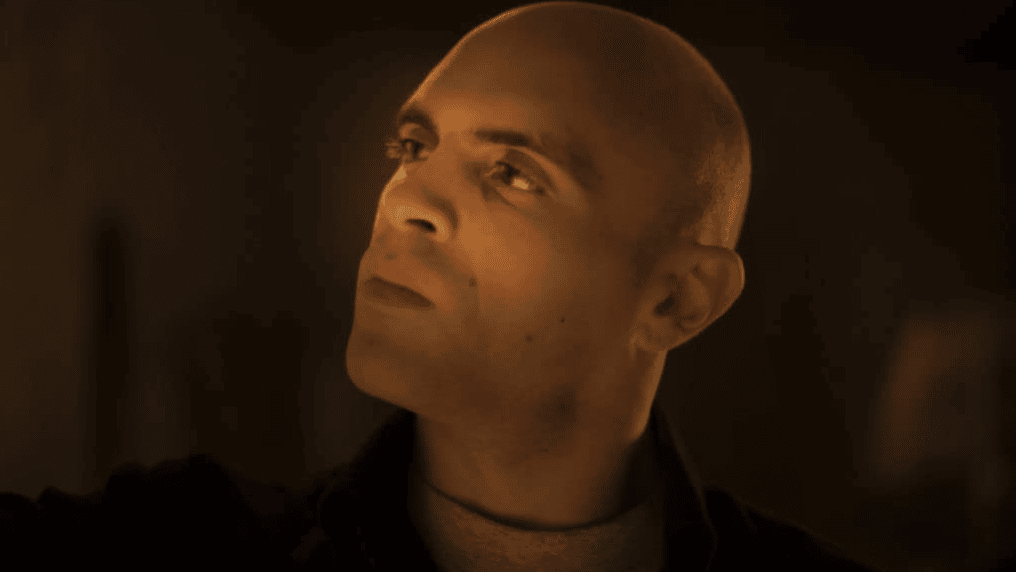
Denkraum (2020), an independent film which operates very much in an experimental vein, differs from many experimental films in its choice of subject matter. The rather more expected deliberations on life, the universe and everything are refracted through a new kind of social media here: this is the ‘Denkraum’, or experimental space, of the title: Denkraum itself operates not just as a social network, but as a nightmare-filled space which goes one further than many existing social media platforms. Denkraum‘s levels of experimentation will not be for everyone because they never are, but if your tastes turn to more abstract, symbolic and deliberative material, then there is lots to admire in its almost painterly and progressive style.
Alex (Manuel Melluso) is obsessed with his ex partner, Alice: not only does she control his thoughts, but by way of some sort of unpleasant balance he uses his expertise in computers to monitor her life, albeit this makes his feelings of longing and anger worse than they might have otherwise been. Be careful what you wish for, I guess. In his pursuit of her, he has come up with the entirely new Denkraum platform, a video/textual platform, and seems to be in a position of power because of its special affordances. He watches Alice (Alba Barbullushi) on hedonistic nights out, reading text messages and keeping an eye on her friends. He continues to contact her too, though she begs him to forget her; he has the temerity to claim that his controlling behaviour is for her own good, but he does seem to try to move on, at least notionally.
However, fantasy and reality are, by this point, on a collision course. In much the same way that thieves always think people are trying to rob them and adulterers always worry that their partner will cheat on them, Alex starts to feel that he, too, is being monitored. He receives contact from ‘Jacob’, who not only knows what he’s been up to but evidently understands what makes Alex tick. Alex’s abortive forays into a life outside of Denkraum and Alice grow increasingly mixed up and hostile; Alex, already somewhat of a neurotic outsider, becomes increasingly paranoid.
This is only a loosely narrative piece of film – think an art-house Black Mirror with some shades of reality TV The Circle, at least in how the use of text, video and personae all meld together here. There are definitely nightmarish aspects throughout: Denkraum doesn’t simply offer a regular kind of platform for people to interact (admittedly all of those places can tend towards the nightmarish on occasion) but rather heads straight for people’s more hidden concerns, preoccupations and fears. Towards the end of the film, Denkraum also seems to suggest some of the ways that, in a social media-saturated world, we tend to give ourselves over to quasi-religious, even cultish behaviour too. As much as the film indulges itself in philosophical meanderings – some of which are, unfortunately, a little lost in translation, on a semantic or syntactical level – it is nonetheless quite busy, with text messages, images, and voiceover all overlapping. It also often segues from deliberations on life and love into tonally very different, explicit conversations (intercepted, or otherwise) on sex and sexuality. In short, for a film which runs for less than ninety minutes, there is rather a lot to take in.
It is, altogether, interesting to see social media get the experimental treatment, and first-time feature director Luca Paris has certainly not played it safe here: that deserves credit. He has also pulled together a visually appealing, crisp, colourful film, an enigmatic, modern spin on the old trope of ‘the nightmare’ – and an enigmatic performance from Melluso, who fits the role perfectly.
